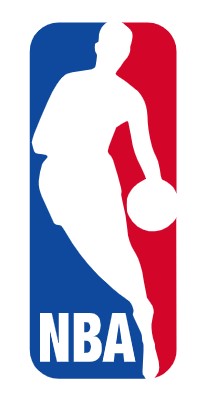
Considering August is one of the only periods of the year when basketball isn’t being played, there’s no better time to look at a different collection of topics…like NBA contracts. The salary cap is one of the biggest separators between collegiate and professional basketball, but it’s unclear if the general masses truly comprehend contract value. People see Karl-Anthony Towns making $53 million per year and assume it’s a quality contract because he’s a talented player who produces. However, it raises the question of “Is there equal value in money and ability?” Again, it becomes hazy since someone like Towns is great, but his contract makes building a real contender an uphill battle. So, let’s take a look at five of the worst contracts in the NBA…
Joel Embiid (3 years/176 million + player option for 67 million in 2028-29)
Look, Embiid is an MVP. Whether one agrees with him winning it or not, he absolutely earned and justified the mega-max contract. However, paying him what he deserved has inevitably put Philadelphia in salary cap hell. He’s only played 60 games four times in his career. The last two seasons? 58 games combined. When he did play, Embiid was either still hurt or out of shape. Next year, Philadelphia is slated to pay 100 million to two guys who might not even play half the season. They’ll rinse and repeat this process (because the contracts are legitimately untradeable) for two more seasons after this…and will still have Embiid for another year.
Devin Booker (3 years/ 171 million + 2-year extension for 150 million)
Somewhat different from anyone in this group, Booker is probably the most justified bad contract (especially if the cap continues to increase) listed. The original contract of 3 years for 171 million is fine for a player of his status. However, the additional 2 years and 150 million seem a little excessive for a guy who hasn’t shown the ability to carry a team to the Finals on his own. Yes, they had the Finals run, but guys like Chris Paul, Cam Johnson, Mikal Bridges, DeAndre Ayton, and others made them a legitimate team. Financially, they could not replicate that roster. Booker will probably be in Phoenix as long as he desires, as the contract will likely become too expensive to move to a contender.
Paul George (2 years/ 105 million + player option for 57 million in 2027-28)
The other half of Philadelphia’s dumpster fire is George, who is the 15th highest-paid player in and the 20th oldest player in the league. While this fact alone isn’t ridiculous (as others like LeBron James, James Harden, and Steph Curry also apply), it’s more based on the fact that George is rapidly declining and his body is deteriorating. He only played half of last season and posted some of the worst numbers of his career. The only potential saving grace is the hope that he will have a clean bill of health, but even that leaves questions about cohesion with this current group as they shift towards a younger core.
Zach Lavine (1 year/47 million + player option for 49 million in 2026-27)
Although he’s currently on an “expiring” deal, go ahead and bank on Lavine picking up that player option for nearly 50 million next summer. After documenting my likeness for him going into the draft, Lavine has largely been a success in the NBA. However, his teams cap out at mediocre (46 wins is his highest ever), and his numbers (though impressive) don’t lead to anything meaningful. It must be a tough pill to swallow knowing you are paying the 17th highest contract in the NBA for a guy who can’t even guarantee you a playoff spot. Exciting, entertaining player? Absolutely. Does he help you win…at almost 50 million annually? No.
Lauri Markkanen (4 years/196 million)
Similar to the entry above, you’d be hard-pressed to find a bigger fan of Markkanen than me, but his contract is almost impossible to defend. His first two seasons in Utah were phenomenal, yet might’ve turned out to be fool’s gold. After consecutive years of career-high production, Markkanen has dipped in every statistical category and watched his percentages drop across the board. Not only did he play fewer games, but he looked uncomfortable whenever he did take the court. The biggest concern is the three-point shooting, which is clearly his calling card, taking a massive dip under 35%. He’s never been much of a defender or playmaker, but the three-point shooting must remain intact for Markkanen to have a bounce-back year.